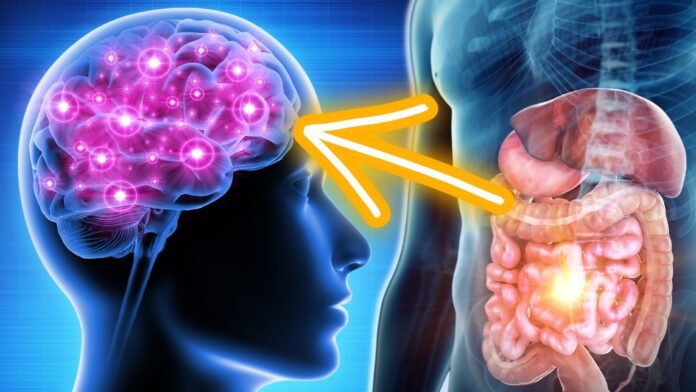Have you ever wondered why you feel better after eating a well-balanced meal or experience mood swings when your diet is less than ideal? The gut-brain connection plays a significant role in our overall health, including mental well-being. In this blog post, we will explore the connection between the gut and the brain, how diet affects gut health, and the impact of specific nutrients on mental health. By understanding these relationships, you can make informed dietary choices to support both your physical and mental well-being.
The Gut-Brain Connection: An Overview
The gut-brain axis is a complex communication network that links the digestive system with the central nervous system (CNS). It involves a combination of hormonal, neural, and immune system pathways that allow the gut and the brain to exchange information. Neurotransmitters, chemical messengers found in both the gut and the brain, play a crucial role in this communication process. An imbalance in gut health can lead to changes in mood, cognition, and behavior, emphasizing the importance of maintaining a healthy gut environment.
How Diet Affects Gut Health
A balanced diet rich in whole foods is essential for maintaining a healthy gut microbiome, the community of bacteria that resides in our digestive system. These beneficial bacteria help digest food, produce vitamins, and support the immune system. Consuming fiber-rich foods, such as fruits, vegetables, and whole grains, supports the growth of good bacteria. Additionally, incorporating probiotic and prebiotic foods into your diet can promote a diverse and robust gut microbiome.
Conversely, a diet high in processed foods, sugar, and excessive alcohol consumption can negatively impact gut health by promoting the growth of harmful bacteria, leading to an imbalanced gut microbiome.
Specific Nutrients and Their Effects on Mental Health
Certain nutrients have a direct impact on mental health, and including them in your diet can support overall well-being. Some examples include:
- Omega-3 fatty acids: These essential fats are vital for brain function and have been linked to improved mood and reduced symptoms of depression. Sources of omega-3s include fatty fish, walnuts, flaxseeds, and chia seeds.
- B vitamins: B vitamins, such as B6, B9 (folate), and B12, play a crucial role in mood regulation and the production of neurotransmitters. Foods rich in B vitamins include leafy greens, legumes, whole grains, and lean meats.
- Magnesium: Magnesium is known for its stress-reducing properties and has been linked to reduced anxiety levels. Foods high in magnesium include dark chocolate, nuts, seeds, and leafy greens.
Probiotics and Mental Health
Probiotics, or beneficial bacteria, can have a positive impact on both gut health and mental well-being. Consuming probiotic-rich foods, such as yogurt, kefir, sauerkraut, and kimchi, can help maintain a healthy gut microbiome. When selecting a probiotic supplement, look for one that contains multiple strains of bacteria and has a high number of colony-forming units (CFUs).
Strategies for Improving Gut Health and Mental Well-being
To support both gut health and mental well-being, consider incorporating the following strategies into your daily routine:
- Eat a diverse range of whole foods, focusing on fruits, vegetables, whole grains, lean proteins, and healthy fats.
- Practice stress reduction techniques, such as meditation, deep breathing exercises, or yoga, to support gut health.
- Engage in regular physical activity and ensure you get adequate sleep each night.
Conclusion
Understanding the gut-brain connection and the role of diet in mental health is essential for promoting overall well-being. By prioritizing gut health through mindful dietary choices and adopting healthy lifestyle habits, you can positively impact your mood, cognition, and mental well-being. Remember that a healthy gut is the foundation for a healthy mind, so start making those mindful choices today!















